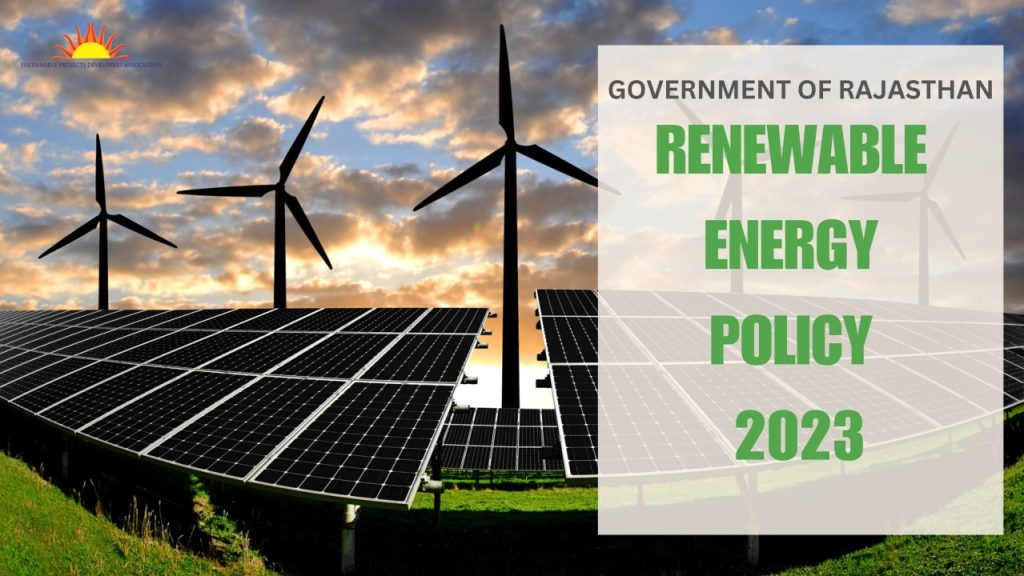
Rajasthan, India’s largest state, boasts unparalleled solar energy potential, with abundant sunlight (5.72 Kwh/m2/day) and over 325 sunny days annually. It offers extensive flat land at competitive rates, making it an ideal hub for solar projects.
Rajasthan’s forward-thinking Renewable Energy Policy 2023 aims to position the state as a renewable energy leader by targeting an impressive 90 GW of projects by 2029-30. This ambitious plan includes 65 GW in solar, 15 GW in wind and hybrid projects, and 10 GW in hydropower, pumped storage, and battery energy storage systems. The policy will be in effect for four years.
Encouraging Diversification and Innovation
One of the key aspects of this policy is the promotion of innovation and diversification within the renewable energy sector. Rajasthan aims to encourage the simultaneous generation of wind and solar power, as well as the adoption of emerging technologies like energy storage systems, including pumped storage projects and BESS.
Nodal Agency for Implementation
To facilitate the effective implementation of this ambitious policy, the Rajasthan Renewable Energy Corporation (RREC) has been designated as the nodal agency. RREC will be responsible for registering, approving, and overseeing renewable energy projects for the duration of this four-year policy.
Utility-Scale Projects and Tariff Bidding
The state aims to promote utility-scale solar power projects for sale to DISCOMs through a competitive bidding process. This initiative serves the dual purpose of fulfilling the renewable purchase obligation (RPO) targets and allowing DISCOMs to procure solar power beyond RPO limits while also taking advantage of renewable energy certificates (RECs) as per regulations set by the Central Electricity Regulatory Commission (CERC) or guidelines provided by the National Load Dispatch Center (NLDC).
For projects intended for captive consumption, the maximum capacity is determined by the consumer’s contract demand as per Rajasthan Electricity Regulatory Commission (RERC) regulations. In cases of projects intended for third-party sales, there is no specific capacity limit. However, consumers can only purchase power up to their contract demand from these projects.
Renewable Energy Facilitation Charges
Developers looking to establish solar parks will need to submit an application to RREC along with a non-refundable registration charge of ₹10,000 ($120.31) per MW, subject to a maximum of ₹2 million ($24,061) plus GST for each park.
Promoting Gross Metering and Decentralized Solar Projects
The policy introduces the concept of gross metering, where the entire generated power is supplied to DISCOMs at a tariff determined by RERC. Rooftop solar systems up to 1 MW capacity are eligible for gross metering.
Rajasthan will also encourage decentralized solar projects with a minimum capacity of 500 kW and a maximum capacity of 5 MW, located on or near 33 kV grid substations. These projects will generate power for sale to DISCOMs. Farmers can participate individually or in partnership with developers and set up decentralized power projects on non-arable agricultural land. The state supports the solarization of existing grid-connected agricultural pumps.
Fostering Off-Grid Solutions and Renewable Energy Parks
The policy promotes off-grid solar applications, including hybrid systems, aligned with MNRE guidelines, addressing residential and commercial energy needs. It also encourages solar power plants to sell electricity directly to consumers through local grids and provides standalone solar systems for remote villages.
Developers establishing renewable energy parks must pay capacity-based registration fees, processed by RREC within 30 days. They are obligated to develop common infrastructure, such as power evacuation systems, roads, lighting, water supply, and administrative support. Government land allotment to park developers is contingent on RREC’s recommendation.
